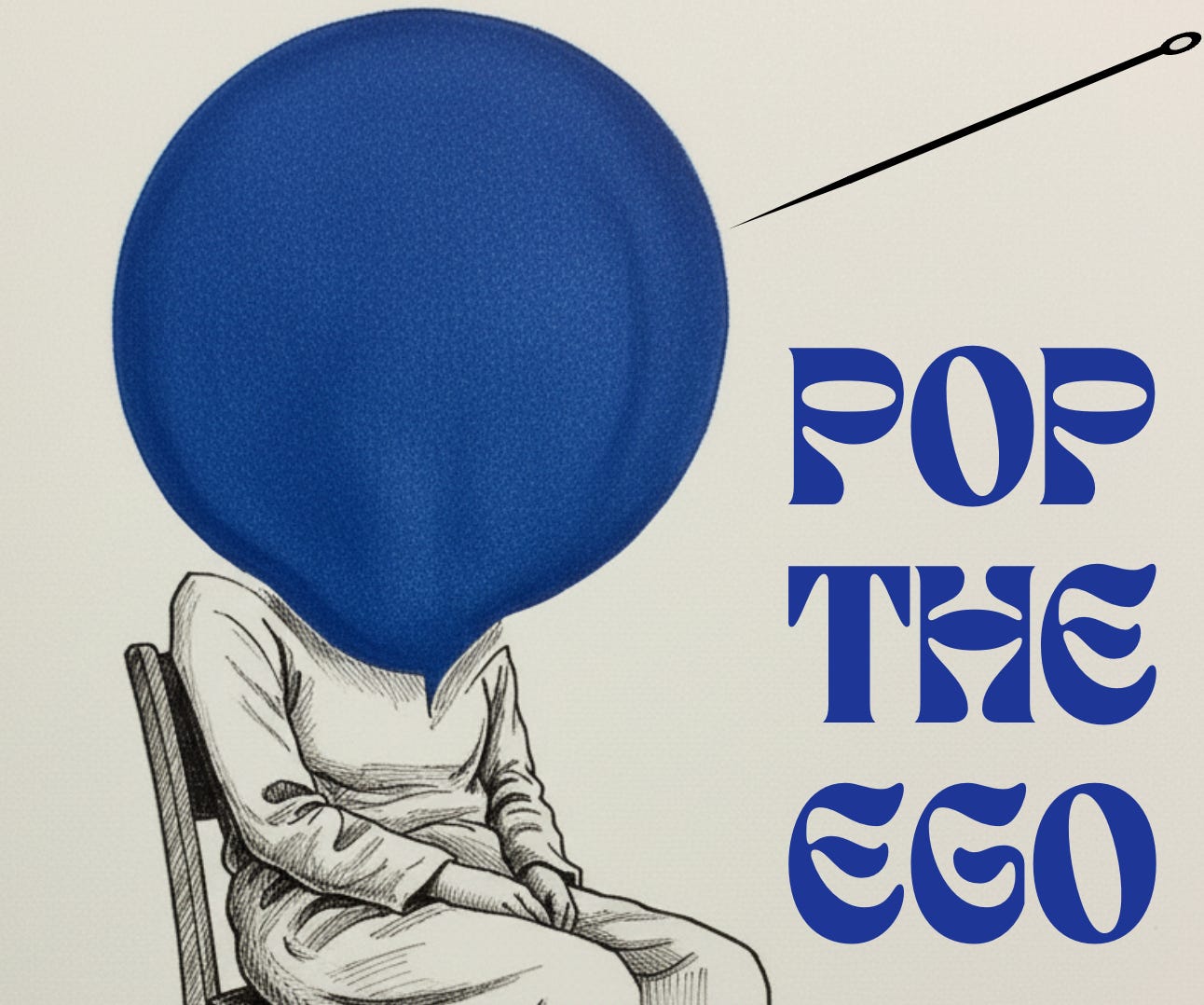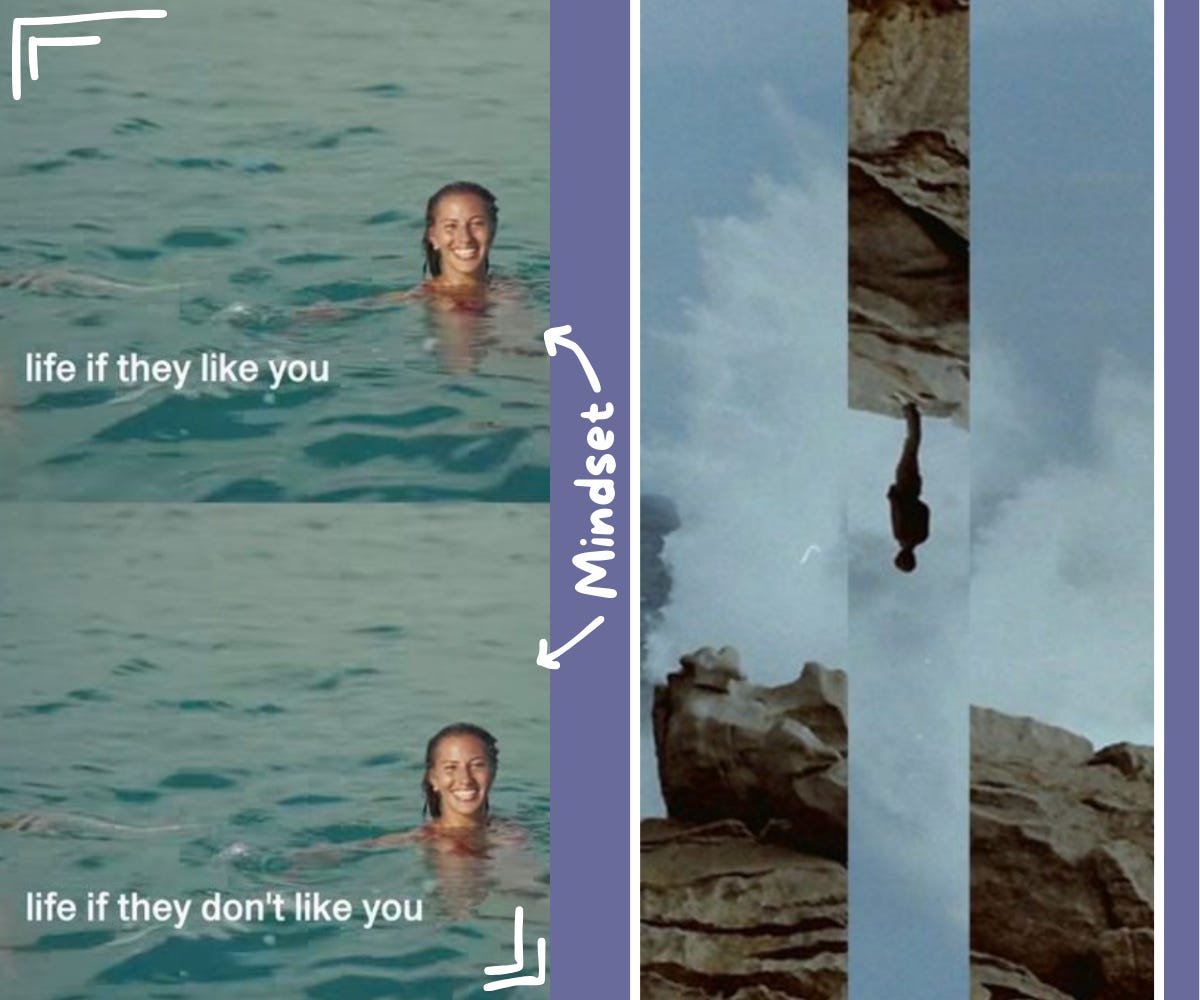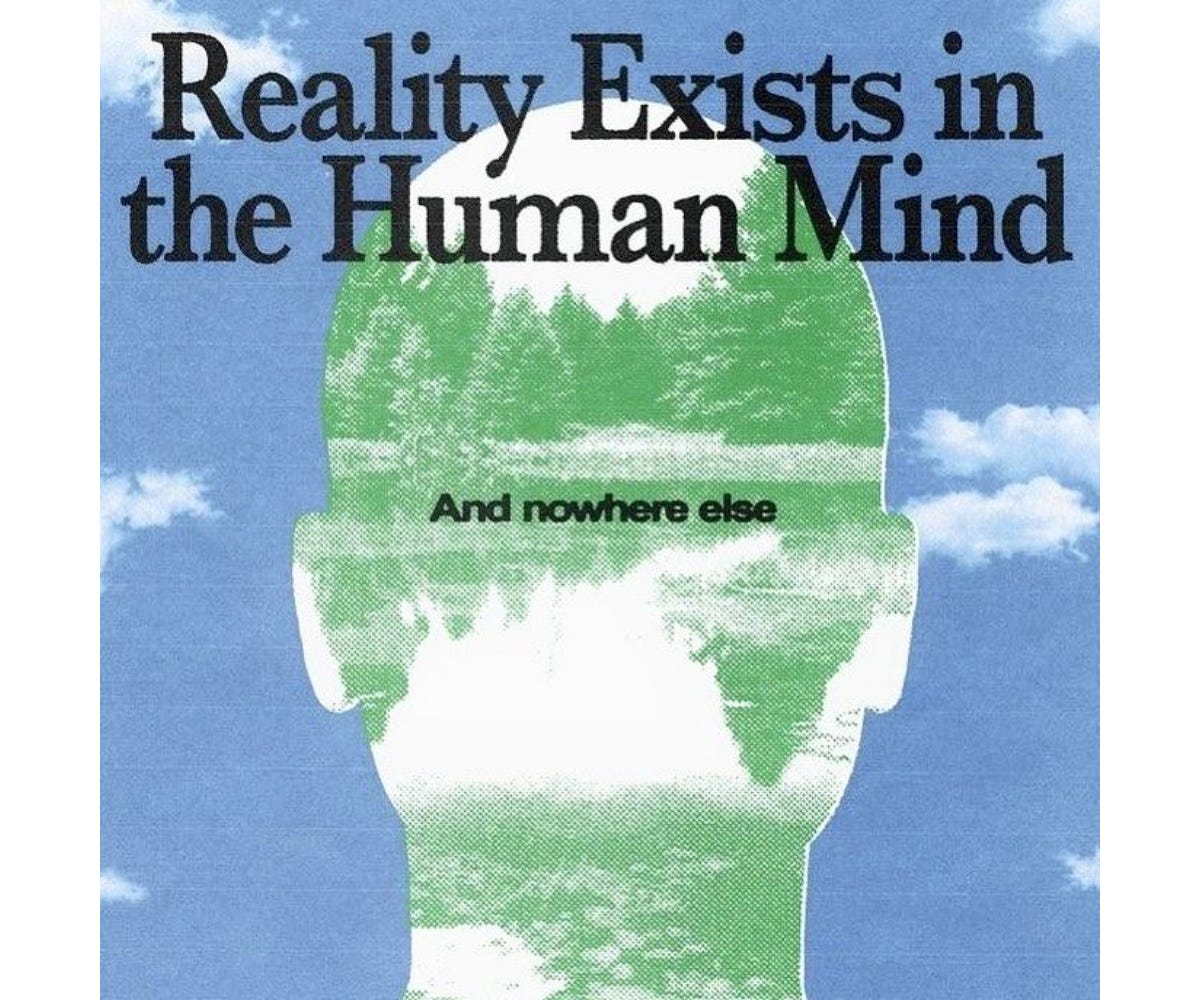How to Escape the Spotlight Effect
Pop the Ego, this week in Happiness
Night out, Burlington Vermont, 12:16 am.
Stepping over the rope outside the club, I hear a pop, then a tear. I looked down. My pants ripped, revealing my underwear. The nightmare of public embarrassment now loomed large in my imagination.
The too-tight, mended, borrowed jeans had given way. Every adjustment popped more stitches along the seam
I just kept walking as if nothing was wrong, sure that any second, the nightmare would overlap with reality: Surely, someone would point and yell, "Look you can see his underwear” and everyone would laugh, right?
right?
I waited and as we walked this never happened. No one even noticed.
This situation is an example of the spotlight effect. Psychologists observe that we often feel watched, a spotlight fixed on us. Yet, most people are so involved on their own stage they don’t even notice us.
Humans are naturally egocentric. We see the world through our own eyes, so imagining others' perspectives takes effort, and we're lazy. When we do try, we often misinterpret: jumping to conclusions, overestimating attention, or misreading intentions.
Egoic Math Problems
We constantly evaluate ourselves, our future, and compare against others. While this social maneuvering once served a purpose, it often leads to unproductive death spirals. Let me show you what I mean:
If I can’t solve this math problem, I’m stupid → if I’m stupid I can’t get a job → no job → no money → no happiness.
According to a study from Harvard we spend roughly half our day with our minds wandering. Often, we're performing the aforementioned "ego math" about our worth and happiness, with mostly negative results. This constant thinking gets in the way of us moving forward in life.
To quote the study: a human mind is a wandering mind, and a wandering mind is an unhappy mind. The ability to think about what is not happening is a cognitive achievement that comes at an emotional cost.
Regret is another example, you are replaying unchangeable past events and tying your current value to them. Regret is a healthy signal that says “hey I did something wrong”. But most things beyond that is nonsensical living in the past. Treating it as a signal for immediate or future change is a more constructive approach.
Tying our self-worth to ephemeral tasks can seem motivating, yet often it paralyzes us, preventing us from addressing the real problem. As Zen and the Art of Motorcycle Maintenance illustrates, climbing a mountain as a pilgrimage to prove your worth rarely ends in success, and any victory feels hollow. The ego-driven climber rejects the present, remaining dissatisfied; always seeking the next point on the trail, only to find dissatisfaction when they arrive, because then the “there” will be “here”.
What is the alternative? detaching from the ego and focussing on the next step, not expending too much energy and getting tired, not too little and getting bored. Right now you are staring up at the mountain peak stumbling over yourself to take the next step. Instead It should be head down, not going too fast or too slow, breathing on the way and noticing the small wonders by the trailside and approaching them with curiosity.
Reducing egoic math and constant mind-wandering measurably increases happiness. But how can you Implement it into your life?
First, cultivate awareness. Recognize unproductive thoughts and challenge them: Does this thinking truly make sense?
Consult this list of cognitive distortions: https://www.therapistaid.com/worksheets/cognitive-distortions
These irrational thoughts, which you choose to entertain, cause misery.
Modern life bombards us with content: articles, podcasts, short-form media are a constant escape from the present. These numbing agents occupy our attention, allowing us to avoid the mental "torture chamber" we've created.
Integrating boredom and mindfulness into your day. This creates essential mental space to confront and overcome your thoughts.
Again from the Harvard study: The ability to think about what is not happening is a cognitive achievement that comes at an emotional cost.
A Healthier Frame for the Ego
Modern psychology and Buddhism converge on an interesting idea: the ego is a construct. No single brain region generates our sense of self; it is artificially created. Buddhism teaches Annata, or "no-self," asserting the self is not a constant concept. What we label as ego is, in fact, a cloud of emotions and feelings; seeing through this can release suffering that results when we attatch ourselves to a fickle mistress.
Is Eminem Buddhist? doubtful, but to losing yourself in the music is an Idea that Eminem, buddhism and psychology can all get behind.
Instead of allowing external factors to define your self-worth, cultivate your intrinsic value from within. This internal strength can then positively influence your external world. Instead of allowing outside factors to control your inside world give the gift of your unique contribution to the outside world.
So in conclusion, the spotlight isn’t real, most people are too busy worrying about themselves to judge you. Ego math only adds up to stress. The alternative? Head down, steady breath, notice the small stuff. That’s where happiness hides.
P.S. sorry for ripping your jeans Tucker <3
Sources:
Zen and the Art of Motorcycle maintenance
https://www.verywellmind.com/what-is-the-spotlight-effect-3024470




